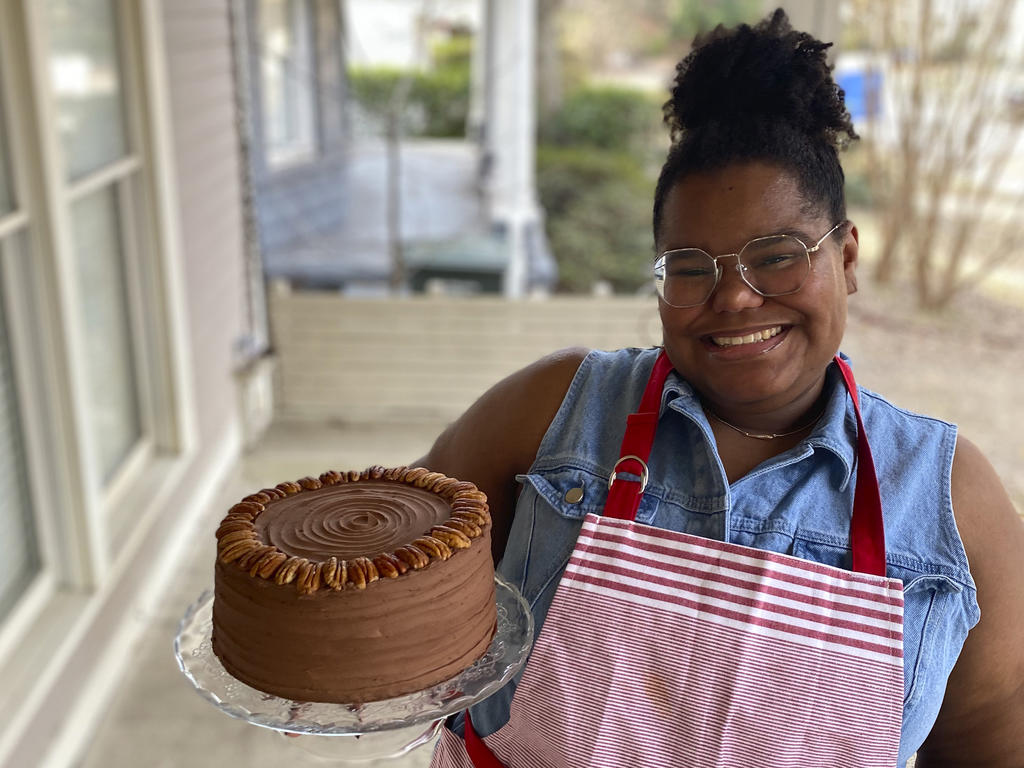Native Memphian Zoe Scott’s dual interests of chemistry and baking have led to a creative career path: food science.
“It can be hard to recognize and accept when it’s time to switch course, and to see your goals change—my plan was always to be a biology major and go to medical school,” says Scott. “When I decided to pursue chemistry instead, I thought deeply about what I’m really interested in and how I could make that work with my chemistry degree.
“We did an experiment synthesizing artificial flavoring in one of my Organic Chemistry labs with Dr. Dana Horgen, and that’s when it clicked for me. When I saw that you can make artificial grape flavoring in a lab, I knew there was a world of possibility to explore in food chemistry.”
Food science is a natural for Scott, who, as a young child, learned how to bake from her grandmother. Years of bringing treats to her classmates for holidays and birthdays led her to launch her own cake business, creating custom birthday and holiday desserts for friends and family, while also working for the past three years at a local bakery.
Her interest in food science led her to conducting analytical research on campus under the instruction of chemistry professor Dr. Jon Russ, whose lab uses chemical analysis techniques to study residue from smoking pipes excavated from archaeological sites. Over the past year and a half, Scott has analyzed the chemical components of various herbs before and after they have been smoked, which aids in the organic analysis of herb samples from prehistoric pipes.
“The techniques I’ve learned from Dr. Russ in analytical research will be especially relevant to food chemistry,” says Scott. “I’ve also found myself turning a lot to Dr. Horgen, who also loves baking, during this process.”
Scott also credits the mentorship of chemistry professor Dr. Shana Stoddard for inspiring her and equipping her with the skills needed to pursue an academic and professional career in food science. Stoddard encouraged her to embrace the art of the pivot, and pursue those interests that lie beyond the typical trajectories of STEM students.
“Dr. Stoddard has been my biggest inspiration at Rhodes. It’s like she has a sixth sense—she can tell when you’re having a rough day and knows exactly what you need to hear. She has her eye on all of the Black students in STEM, and she makes a point of reminding us that we belong here.”
Scott, who graduates in May, is in the process of applying to graduate programs in food science, where her main interest is the study of plant-based food and the cutting-edge development of products such as the Impossible Burger.
By Grace Merriman ’21
